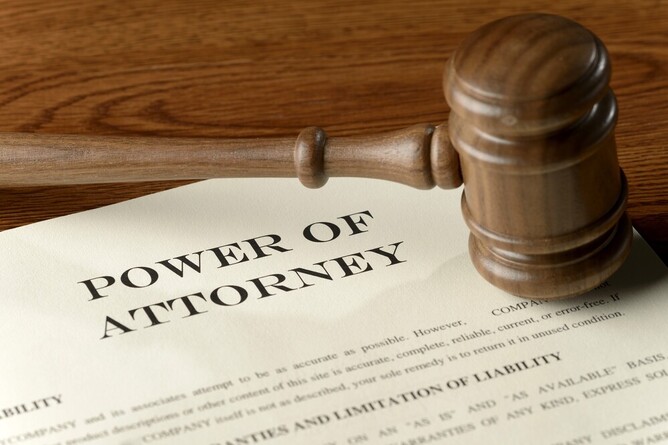An enduring power of attorney is a legal document that appoints someone of your choosing to make personal, financial, legal and property decisions on your behalf. They will do this if you lose capacity to make decisions yourself because of illness or injury.
An enduring power of attorney is a formal document that appoints a trusted person such as a family member or friend (referred to as ‘the attorney’) to make financial, legal and property decisions on your behalf if you lose the mental capacity to do so yourself. You can appoint more than one enduring power of attorney (i.e. joint attorneys).
Unlike a general power of attorney, which appoints someone to make decisions on your behalf for a specific period or event, an enduring power of attorney makes decisions for you on an indefinite basis, such as if your health is failing or you lose cognitive function. An enduring power of attorney can be operational while the person still has capacity but may be physically unable to attend to financial matters.
What can an Enduring Power of Attorney do?
An enduring power of attorney:
- allows the appointed person(s) to operate bank accounts (e.g. pay bills)
- can enable the appointed person(s) to sell your property
- can enable the appointed person(s) to vote at meetings on your behalf
- is like a general power of attorney but it remains valid (endures) after you lose legal capacity to make decisions for yourself
- can be anyone over the age of 18 years who can assist an individual with money or property. It can be a relative, friend or professional adviser. It does not have to be a lawyer or solicitor.
What can’t an Enduring Power of Attorney do?
An enduring power of attorney does not allow the appointed person(s) to:
- make personal or medical decisions on your behalf
- make a will
- swear or affirm your affidavit
- do anything that cannot be delegated by law.
An enduring power of attorney is not the same as a will and can only be made by a person if they have the legal capacity to create an enduring power of attorney. Once you have lost legal capacity, you cannot make or withdraw an enduring power of attorney.
If you don’t have an enduring power of attorney and a family member or friend needs to make financial decisions on your behalf, they will have to apply to be appointed to the role, either through the Civil and Administrative Tribunal or the Supreme Court. This can take a long time so it’s much easier to give someone an enduring power of attorney.
An enduring power of attorney can either be made effective immediately or come into effect on a later date.
An enduring power of attorney does not permit an attorney to make personal and lifestyle decisions, including decisions about treatment. This is when you need an Enduring Power of Guardianship or an Advanced Health Directive. We will discuss these in our next blog.
Factual Advice Warning: Any information provided in this website is purely factual in nature and does not take into account your personal objectives, situation or needs. The information is objectively ascertainable and is not intended to imply any recommendation or opinion. This does not constitute financial product advice under the Corporations Act 2001 (Cth).


